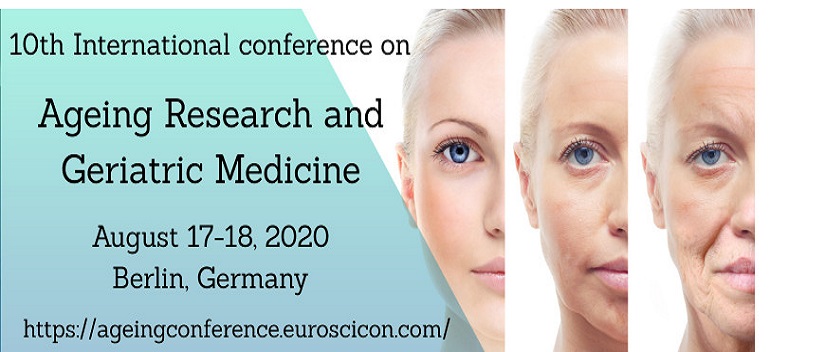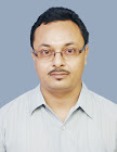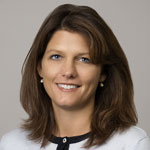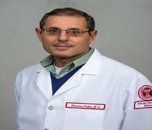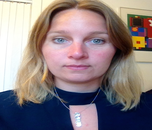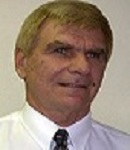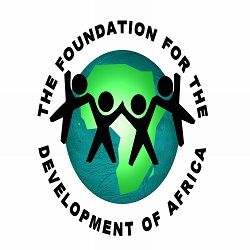Ageing 2020
About Conference
After the terrific achievement of the Aging 2019 Conference with members from all around the world, Euroscicon Ltd. satisfied to report Aging Research 2020 meeting, which will occur from during April 22-23, 2020 at the Berlin, Germany.
Ageing Research 2020 incorporates first class keynote talks, Oral introductions, and Poster introductions, Workshops, Symposiums and Exhibitions. The meeting will highlight an understudy blurb session to demonstrate crafted by inventive undergrad and graduate understudies.
Ageing Research 2020 is a logical foundation of Geriatricians, Gerontologists, Doctors, Professors, Social Workers, Palliative Care Specialists, Nurses, Health Care Administrators, Researchers and Students, where they can share and examine their thoughts, information, research, accomplishments and headways of Ageing science and gerontology field.
The fundamental point of the meeting is to give a logical stage to talk about the new thoughts for Ageing and gerontology field. Grow the human system all around in this field. Give a chance to proficient improvement to the early profession began gerontologists.
Theme: Advancements in Elderly Care Practices for Promoting Healthy Ageing
Key Topics
After the astonishing achievement of the Aging 2019, Conference with members from all around the world, Euroscicon Ltd. satisfied to report Ageing Research 2020 gathering, which will happen from during April 22-23, 2020 at the Berlin, Germany.
Ageing Research 2020 incorporates world class keynote talks, Oral introductions, and Poster introductions, Workshops, Symposiums, and Exhibitions. The meeting will highlight an understudy publication session to demonstrate crafted by creative undergrad and graduate understudies.
Ageing Research 2020 is a logical foundation of Geriatricians, Gerontologists, Doctors, Professors, Social Workers, Palliative Care Specialists, Nurses, Health Care Administrators, Researchers and Students, where they can share and talk about their thoughts, information, research, accomplishments, and headways of Ageing science and gerontology field.
The principle point of the gathering is to give a logical stage to examine the new thoughts for Ageing and gerontology field. Extend the human system all around in this field. Give a chance to proficient improvement to the early profession began gerontologists.
In people, Ageing Process speaks to the aggregation of changes in a man after some time, hold inside physical, mental, and social changes. Ageing is the most serious hazard factors for a large portion of the human sicknesses. Around two, third individuals are kicking the bucket every day from age related ailment over the globe.
Theme : Advancements in Elderly Care Practices for Promoting Healthy Ageing
Our main target audience:
Students and others interested in the field of Geriatrics
Business delegates and industry professionals
Key Topics :
Psychiatric Disorders and Ageing
Nutrition Care & Standards of Living
Health Science, Geriatrics, Gerontology
Traditional Medicine and Elderly
Machine and Devices for Elderly
Psychiatric Disorders and Ageing
Nutrition Care & Standards of Living
Health Science, Geriatrics, Gerontology
Traditional Medicine and Elderly
Machine and Devices for Elderly
Session And Tracks

Ageing is an outcome of the pleiotropic effects of genes that specify other processes. The first pathway shown to influence ageing in animals was the insulin/ IGF-1 pathway. For several years, the molecular biologists who deal with the regulatory mechanisms did not seem to be interested to study ageing. But now we see that the process of ageing is subject to regulation by classical signalling pathways and numerous transcription factors. The discovery of these pathways was first done in short-lived organisms such as yeast and flies. There were many discoveries done to bring about the drugs which could slow down the process of ageing. Researchers say that mutations which slow down the process of ageing also lead to delay of age-related diseases.
One of the significant theories in ageing genetics is the DNA damage theory of Ageing. It explains that the consequence of an undamaged accumulation of naturally occurring DNA damages is termed as ageing. Here, damage means a slight alteration in the DNA having an abnormal structure. Both mitochondrial, as well as nuclear DNA damage, contribute to ageing, the main target here is the nuclear DNA damage as it contributes directly by increasing the cell dysfunction or indirectly by apoptosis (cell death).
Werner Syndrome (adult progeria) is a rare autosomal recessive disorder which is considered as the appearance of premature ageing.
The changes found in the Gene transcription of Werner Syndrome are analogous to the Genes observed in normal ageing

The method by which the cells stop dividing irreversibly and get a permanent growth arrest without the process of cell death is known as Senescence. This process can be delayed and prevented. There are few conditions such as Syndrome X, where in this condition, a person remains mentally and physically a child throughout his/her life.
Environmental factors can also account to the cause of ageing. Some of the factors include over exposure to UV Radiation which leads to skin ageing. Different parts of the body may age at different rates. Of the 150,000 people who die each day, about 100,000 per day die of age-related factors namely senescence.
Causes of senescence include gene expression changes, damage which is caused by biological processes etc.
The ongoing research is still in a dilemma if the senescence as a biological process itself can be slowed down or reversed or completely put to a halt.
The mechanism for preventing the proliferation of potential cancer cells is called Cellular Senescence. It promotes tissue repair associated with ageing and cancer progression and suppresses tumorigenesis. The four complex biological processes associated with cellular senescence include,
Tumour suppression
Tumour promotion
Ageing
Tissue Repair
The only way to understand the response of senescence well enough to accelerate its benefits and decelerate its drawbacks.
10.Oncogene induced Senescence
11.DNA damage induced senescence
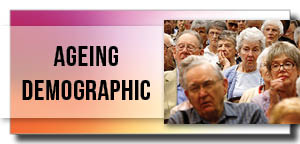
Ageing Demographics also known as Population Ageing is the increase in age of a population confined to a particular region which may be due to rising life expectancy or declining potential natality. The population of aged is by far the highest in human history. Since 1950, the number of people above 60 years of age has increased three-fold, reaching 600 million in 2000 and exceeding 700 million in 2006. A study says that the Geriatric population will reach 2.1 billion by 2050.
The population aged 60 years and above was estimated to be 605 million in 2000 and is predicted to grow to nearly 2 billion by 2050. Persons aged 60 or older currently accounts for 10 per cent of the world’s population. Developed countries have a higher percentage compared to the developing countries accounting to 20 per cent and 8 per cent respectively. The least developed countries only account for 5 per cent. Greece and Italy are the countries which have a high number of aged people. By 2050, we can see that many European countries will also have the same demographics. The final statistics of old age will make up to 22 per cent of the world population, 33 per cent in developed regions and 12 per cent in the underdeveloped regions. When regions are taken into consideration, the majority of the world’s aged people reside in Asia accounting to 53 per cent, next comes Europe with 24 per cent. Research states that by 2050, Asia’s share of the older population will increase to 63 per cent while Europe will show a decrease from 24 per cent to 11 per cent.
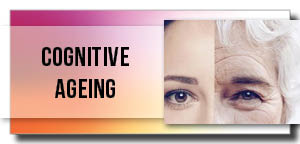
As we get older, our psychological and cognitive capacities bit by bit disintegrate. A specific sum of cognitive decrease is a typical piece of maturing/ageing. A few people, in any case, will encounter a serious weakening in intellectual abilities, prompting dementia (memory loss). This can make it difficult to adapt to common everyday tasks. Since we're living longer, it's more probable that we, or somebody near us, will experience the ill effects of dementia.
Normal Cognitive Ageing hides the fact that there are pretty much fruitful directions of intellectual change as individuals grow older. Recognizing the hazard factors for, and components of, singular contrasts in age-related intellectual decrease is among the best difficulties to enhancing the soundness of more seasoned individuals. The range of decay ranges from normal cognitive ageing to the dementias.
Cognitive Ageing is a complex methodology. There is a little age-related decrease in some psychological capacities and mental functions, for example, vocabulary, numerical abilities, and general information—yet other mental abilities decline from middle age onwards, or considerably prior. These functions are basic for doing regular exercises, living freely, and for general wellbeing and prosperity. A further three discoveries are striking. First, different aspects of age-related decline occur together. Second, impeded speed of information processing and data handling represents an extensive extent of age-related decrease in every single intellectual area. This abating of speed of mind processing starts in young adulthood. Third, the capacity to plan and attempt numerous regular exercises has all the allocates of being delicate to maturing, and especially striking disabilities in double entrusting or multitasking seem to flag the beginning of dementia. There is a huge demonstrative gap in this inexorably extensive medical issue: the natural establishments of cognitive ageing over the range, impeded data preparing, and multitasking, are unknown.
18.Depression
22.Delirium
23.Dementia
24.Stress
25.Delusions and Hallucinations
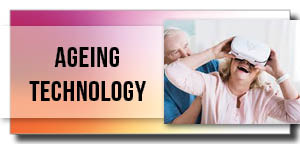
With a standpoint to future potential outcomes and early innovations in the fields of robotics, smart sensors, neural interfaces, and computerized reasoning, technology has come a long way. Targets and Prerequisites to build up the role of technology for ageing, it is necessary first to consider the foundational goals and requirements, preoccupied from a specific mechanical approach usage, for a protected and safe environment. It is well-known fact that technology has a great impact on health care and can support the ageing population ranging from digital tools to artificial intelligence. For instance, patients would now be able to utilize virtual reality for physical exercise and pain treatment, a clinical outcome resulting from telemedicine interventions. These trends will allow older adults to successfully age in place since the vast majority of people want to age in their current homes and communities. If emerging technologies are accessible to all (especially if older adults are at the forefront of strategy), there will be a culture shift in healthcare. Looking to the future, the use of innovative advances ought to be precisely examined. The foundation of the baselines whereupon to benchmark the social and utilitarian estimation of new ageing set up help innovation-based frameworks and administrations is especially suggested. With a specific end goal to put the best possible part for the innovation for ageing, it is essential initially to think about the underlying destinations of such advancements.
Ageing is a complex process of amassing of damage and is the major chance for the overwhelming executioner illnesses in developed nations. A later breakthrough is the revelation that changes in single potentials can deliver a broad-spectrum improvement in solid ageing in creatures’ models. These discoveries could lead to the development of an idle, broad-spectrum, preventative medicine for the illnesses of ageing. These are early days for ageing research, it is a younger field compared with research into the distinct diseases of ageing which is called as Parkinson’s or Alzheimer’s disease. However, despite the relatively long period of research and the larger international research community, there are still no defensive and limited relaxing treatments for these conditions so there is a major involvement of ageing research, as shown by a rise in the number of organizations and international meetings devoted to ageing research. Ageing not only decreases the quality of life, but it also seems to motivate diverse ageing- related diseases.
29.Arthritis
31.Diabetes
32.Osteoporosis
33.Oral Health
34.Obesity
37.Cataract
39.Hypertension
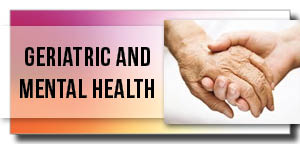
Palliative Care is a multidisciplinary way to deal with specific medical and nursing care for individuals with life-constraining sicknesses. It centres around giving relief from the manifestations, torment, physical pressure, and mental worry of a terminal diagnosis. The objective is to enhance personal satisfaction for both the individual and their family. Palliative care is given by a group of doctors, medical attendants, nurses, physiotherapists, word related advisors and other health experts who cooperate with the essential care doctor and specialists and hospice staff to give extra help. It is appropriate at any age and at any phase in a genuine sickness and can be given as the fundamental objective of care or alongside healing treatment. Despite the fact that it is a vital piece of end-of-life mind, it isn't restricted to that stage. Palliative care can be given over different settings incorporating into healing centres, at home, as a major aspect of group palliative care programs, and in gifted nursing offices. Interdisciplinary palliative care groups work with individuals and their families to elucidate objectives of care and give side effect administration, psycho-social, and otherworldly help.
41.Elderly Care
42.Primary Care
44.Polypharmacy

The ageing process alters body creation with the goal that nourishing status changes as per our developing age. The ageing process demonstrates interindividual fluctuation in its rate of advancement. Untimely maturing (premature ageing) of cells and tissues is because of hereditary factors and long-term exposure to a physical or chemical environment which is the reason for irreversible tissue harm. Early ageing and geriatric sickness foreshorten life; however, both can be foreseen to some degree by eating fewer carbs or by changing eating routine and exercise. Diseases that can be forestalled, giving us a more prominent shot of accomplishing our hereditarily decided life expectancies, incorporate nourishing lack states and endless eating regimen related sicknesses, for example, non-insulin-subordinate diabetes, hypertension, coronary vein infection, and tumour. Incapacities coming about because of these diseases and from degenerative joint pain are additionally subjected to balance by eating less. The nourishing prerequisites of the elderly are for the most part like those of more youthful individuals. Elderly as a rule require fewer calories and supplement admissions in contrast to youthful individuals. Elderly with higher requirements for particular supplements incorporate homebound or standardized individuals who need daylight presentation and hence require more vitamin D. Nutritious necessities to advance longer future and opportunity from incapacities that result from incessant illness incorporate limitation of sustenance vitality and fat. Nourishing review of the elderly is gone for recognizing the closeness of inadequacy states as well as conditions of supplement overabundance and endless eating routine related illnesses. There are issues in the implementation of nourishing appraisal in the elderly, however, methods are currently accessible which make substantial evaluation possible even in the most seasoned old. The individuals who live longest have a less hereditary danger of untimely ageing, yet because of local knowledge, training, adapting abilities, and higher financial status, they likewise have a more prominent probability of eating a diet that best meets their nutrition requirements. Malnutrition is found in elderly in our general public who live in their own homes on the off chance that they are destitute, confined, and homebound due to disability.
45.Obesity
49.Malnutrition

Life extension science (anti-ageing medicine) can also be termed as uncertain life augmentation, exploratory gerontology, and biomedical gerontology is defined as the investigation of slowing down or reversing the procedures of ageing to broaden both the most extreme and normal life expectancy. The capacity to accomplish this, be that as it may, does not presently exist. A few specialists around there, and "life extensionists", "immortalists" or "longevists" (the individuals who wish to accomplish longer lives themselves), trust that future breakthroughs in tissue restoration, undifferentiated cells, regenerative drug, sub-atomic repair, quality treatment, pharmaceuticals, and organ substitution (for example, with artificial organs or xenotransplantations) will, in the end, enable people to have inconclusive life expectancies (agerasia) through complete rejuvenation to a well youthful condition. The moral implications, if life augmentation turns into a possibility, are argued by bioethicists. The expansion of life has been a want of mankind and a pillar theme ever.
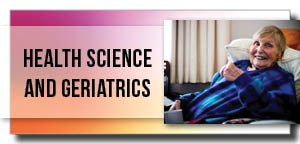
Geriatrics or Geriatric Medicine is a claim to fame that spotlights on human services of elderly individuals. It expects to advance wellbeing by averting and treating ailments and inabilities in more established grown-ups. There is no set age at which patients might be under the care of a geriatrician, or geriatric doctor, a doctor who spends significant time in the care of elderly individuals. Or maybe, this choice is dictated by the individual patient's needs and the accessibility of an expert. It is critical to take note of the difference between geriatrics, the care of matured individuals, and Gerontology, which is simply the investigation of the Ageing Procedure. Geriatrics term originated from the Greek word geron (old man), and iatros (healer). In any case, geriatrics is every so often called remedial gerontology.
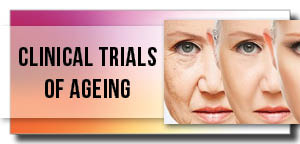
Intercessions that target principal maturing process can possibly change human wellbeing and health care. An assortment of hopeful medications has risen up out of essential and translational research that may target ageing forms. Some of these medications such as metformin and rapamycin are as of now in clinical use for different purposes. In any case, outlining clinical trials to test mediations that aim the ageing procedure poses a special arrangement of difficulties. The results of a universal gathering co-ordinated by the NIH-supported Geroscience Network to promote the goal of building up a translational pipeline to move candidate compounds through clinical trials and at last into utilization. A few medications as of now in clinical utilize may target key ageing forms. The plan standards of clinical trials to test such medications in humans, incorporate investigation populaces and intercessions. For instance, a few situations for potential clinical trials fixated on the ideas of wellbeing range and flexibility (reaction to or recuperation from intense wellbeing stress). At long last, the plan of the proposed Targeting Ageing with Metformin contemplate has been examined.
64.Antioxidants
65.Exercise
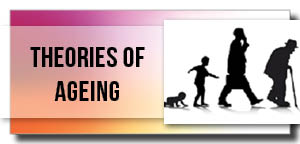
There are many theories of Ageing. In 1990 Mevdevev in a brilliant analysis identified that there were more than 300 theories of ageing and the number is increasing. This is the natural importance of the fact that we are rapidly improving our understanding of the natural occurrences that are connected with ageing using new investigational procedures and ideas. In fact, nearly any major finding in cellular and molecular biology has given rise to a new family of theories of ageing or to enhanced versions of old ones. Thus, the task of revising these theories is becoming more difficult because they are either very selective or they are now old fashioned. This was pointed out by Vijg and Muller. Some of the old theories of ageing placed the ground for the big scientific revolution of ageing, which happens in our days. We believe that the belief of a combined theory which includes all the phenomena related with ageing this evaluation, to offer an initial solution to the problem of offering acceptable theories of ageing, which can monitor new investigates that will increase our understanding of ageing at the various levels of biological association. The cellular theory of ageing assumes that the ageing procedure is the result of the incapability of various types of stem cells to continue to reload the tissues of an organism with functional distinguished cells capable of continuation that tissue's original function. Damage and error accumulation in genetic material is always a problem for systems irrespective of the age.
69.Apoptosis
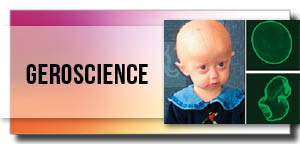
Geroscience is the relationship between natural ageing and age-related ailments and diverse conditions at the sub-nuclear level, which decrease the quality of life. Since ageing is the huge purpose behind most routine unending ailments and conditions, a perception of the piece of maturing in the first place and development of disease should open new roads for avoidance, enhancement, and cure of various constant conditions through intervention in their hidden reason, ageing itself. Geroscience is in this manner a focus of bio-gerontology, however its examination traverse’s different orders including sub-atomic science, neuroscience, protein science, cell science, hereditary qualities, endocrinology, pharmacology, arithmetic, and others. The collective objective is to understand the part of ageing in age-related loss of personal satisfaction and quality of life and susceptibility to infections and diseases.
70.Progeria
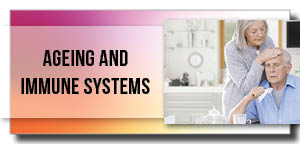
A standout amongst the most perceived results of ageing is a decrease in resistant capacity. The impacts of ageing on the insusceptible framework are obvious at numerous levels. These incorporate reductions in the generation of B and T cells in bone marrow and thymus and decreased capacity of developed lymphocytes in optional lymphoid tissues. The impacts of ageing on the insusceptible framework are across the board and influence the rate at which B and T cells are delivered and additionally the creation and nature of the developed lymphocyte pool. The fundamental objective is to review recent advances, with an emphasis on versatile resistance, in the understanding of the cellular and molecular procedures underlying these age-induced changes and discuss their effects for the design of policies to rejuvenate the immune system in the elderly. We can see that; Elderly people don't react to resistant test as intensely as the youth. The foremost objective of ageing research is to outline the cellular changes that occur in the immune system.
The deterioration of the immune system with ageing is very much perceived. The advancement of protein-energy malnutrition can further cause disintegration in the immune system, bringing about a drastic decrease in CD4+ T cells. Both nutritional supplementation and exercise have been exhibited to help boost the immune system, more seasoned people (old people) have all the qualities of being especially powerless to Bacillus anthracis when utilized as a device of bioterrorism. As may be normal, more seasoned people have more unfortunate results when presented to a portion of the new irresistible sickness episodes, for example, West Nile Virus and SARS. Transfusion-related West Nile infection is more typical in more established than in more youthful people. This helps all of us to remember the significance of immunization against flu in our more seasoned populace.
Related Associations And Universities
Ageing Societies in USA:
Geriatric Medicine - Section of the UEMS| International Association of Gerontology and Geriatrics for the European Region| Ageing Conferences| Ageing Nepal| Geriatric Conferences| Alzheimer Societies in Canada| Geriatric Medicine Conferences| Alliance for Aging Research| Alberta Association on Gerontology| Gerontology Conferences| Canadian Gerontological Nursing Association| Canadian Coalition for Seniors' Mental Health| Canadian Association on Gerontology | International Ageing Conferences| Alzheimer’s Foundation of America’s| Alzheimer's Association| American Geriatrics Society| Healthy Ageing Conferences| American Federation for Aging Research| American Association for Geriatric Psychiatry | Ageing Conferences| American Aging Association | Arizona Geriatrics Society| American Society on Aging| Geriatric Conferences| Australian Association of Gerontology| A5M MEDICAL EDUCATION | Academy for Gerontology in Higher Education| Emerging Researchers in Ageing| Geriatric Medicine Conferences| Dallas Area Gerontological Society| Georgia Gerontology Society| Gerontology Conferences| Deutschen Gesellschaft für Alternsforschung| Gerontological Nurses Association of British Columbia| International Ageing Conferences| Healthy Aging Association| Hawaii Pacific Gerontological Society| International Council on Active Aging| Ageing Conferences| International Federation on Aging| Parkinson Society British Columbia| Geriatric Conferences| Parkinson Alliance| Parkinson's Foundation| Geriatric Medicine Conferences| National Association for Professional Gerontologists| National Caucus and Center on Black Aging| Gerontology Conferences| Creative Retirement Manitoba| Aging In Place| International Ageing Conferences| National Archive of Computerized Data on Aging| LEADERSHIP COUNCIL OF AGING ORGANIZATIONS| Healthy Ageing Conferences| HealthandAge.org| Wayne State University| Institute of Gerontology| Ageing Conferences| SeniorLiving.org | Florida Department of Elder Affairs| Cyber-Seniors : Connecting Generations Inc.| Geriatric Medicine Conferences| Mortgage Broker Calgary | BrightFocus Foundation| York University Centre for Aging Research and Education| Gerontology Conferences| Donald Berman Maimonides Geriatric Centre| Canadian Centre for Activity and Aging| International Ageing Conferences| Gilbrea Centre for Studies in Aging| Université de Moncton| McMaster University | American Geriatrics Society
European Ageing Society:
The German Centre of Gerontology| Ageing Conferences| Deutsche Gesellschaft für Gerontologie und Geriatrie e.V.| Geriatric Conferences| European Network in Aging Studies | European Society of Preventive Regenerative And Anti- Ageing Medicine| Geriatric Medicine Conferences| "European Geriatric Medicine Society”| Ageing Conferences| ALZHEIMER'S DISEASE INTERNATIONAL | Gerontology Conferences| British Geriatrics Society| Alzheimer Europe| International Ageing Conferences| Alzheimer's Society| Healthy Ageing Conferences| Gerontology Conferences | European Geriatric Medicine Society| Ageing Conferences| Research Network on Ageing in Europe| Geriatric Conferences| French Society of Geriatrics and Gerontology| Geriatric Medicine Conferences| Royal Society of Medicine| Geriatric Conferences | International Federation of Associations of the Elderly | Gerontology Medicine Conferences| Berliner Altersstudie| Ageing Conferences| Age & Opportunity| Age Action Ireland| Geriatric Conferences| University of Reading| Gerontology Medicine Conferences| Cambridge University Press| Age UK| Inrternational Ageing Conferences| Age of Creativity |Age Action Alliance| Ageing Conferences | Action on Elder Abuse| Abbeyfield| Ageing Conferences| Beth Johnson Foundation| Alzheimer Scotland - Action on Dementia| ALZHEIMER'S DISEASE INTERNATIONAL | Geriatric Medicine Conferences| Gerontology Conferences| British Columbia Psychogeriatric Association| British Society of Gerontology| British Society for Research on Ageing| Gerontology Medicine Conferences| British Longevity Society| School of Social Sciences| University of Southampton| Gerontology Conferences | Centre for Ageing Better| Carers UK| Ageing Conferences| Care England| Care & Repair England| Contact the Elderly| Ageing Conferences | Dementia Services Development Centre| Geriatric Conferences| European Research Area In Ageing| English Longitudinal Study of Ageing | Geriatric Conferences | The Elders| Geriatric Medicine Conferences| International Longevity Centre| Institute for Ageing| Independent Age| Healthy Ageing Conferences| HelpAge International| Gerontology Conferences |Housing & Care 21| Hanover Housing Association| Ageing Conferences| Oxford Institute of Population Ageing| Geriatric Conferences | OPAAL UK| National Pensioners Convention| National Care Forum| The Third Age Trust| Turn2us| Gerontology Conferences| PENSIONS AND LIFETIME SAVINGS ASSOCIATION| Age Action Ireland| Age & Opportunity| ARK Ageing Programme| The Alzheimer Society of Ireland | ALONE| All-Ireland Institute of Hospice and Palliative Care| Ageing Conferences | All Ireland Gerontological Nurses Association | Centre for Ageing Research and Development in Ireland| Ageing Conferences| Friends of the Elderly Ireland| European Academy for Medicine of Ageing | Irish Society of Physicians in Geriatric Medicine |Geriatric Conferences| The Irish Society of Chartered Physiotherapists| Irish Gerontological Society and Irish Social Policy Association| Centre for Gerontology and Rehabilitation| Gerontology Conferences | THE IRISH HOSPICE FOUNDATION| Geriatric Conferences | Geriatric Medicine Conferences| Irish Centre for Social Gerontology| Solicitors for the Elderly Ireland| Bord Altranais agus Cnáimhseachais na hÉireann, Nursing and Midwifery Board of Ireland | Gerontology Conferences| National Centre for the Protection of Older People| Estonian Association of Gerontology and Geriatrics| Ageing Conferences | Danish Gerontological Society| L-Università ta' Malta| Ageing Conferences| Institute of Gerontology| Secretariat of the Institute of Gerontology| Gerontological Society of Serbia| Geriatric Conferences | Société Française de Gériatrie et Gérontologie | Healthy Ageing Conferences| Italian Society of Rheumatology| Houston Gerontological Society| Acronym Finder| International Ageing Conferences |Gerontology Conferences |Geriatric Conferences
Ageing Societies in Asia:
Indian Gerontological Association| Ageing Conferences| Gerontological Society of Singapore| Gerontology Conferences| HelpAge NGO in India| Geriatric Medicine Conferences| Tokyo Metropolitan Institute of Gerontology| Ageing Conferences| Irish Gerontological Society| Gerontology Conferences| Kentucky Association for Gerontology| Geriatric Conferences| Lewy Body Dementia Association| Geriatric Medicine Conferences| Maine Gerontological Society| Gerontology Conferences| Malaysian Healthy Ageing Society| Maryland Gerontological Association| Massachusetts Gerontology Association| Ageing Conferences| Michigan Society of Gerontology| Minnesota Gerontological Society| Ageing Conferences| Ageing Conferences| National Association of Geriatric Education | Geriatric Conferences| National Council on Aging| Geriatric Medicine Conferences| New Age Research Foundation| International Ageing Conference| Ageing Conferences| Healthy Ageing Conferences| Geriatric Conferences| Oregon Gerontological Association| International Ageing Conferences| Ohio Association of Gerontology and Education |SENS Research Foundation| Geriatric Medicine Conferences| Hong Kong Geriatrics Society| Ageing Conferences| Vital Aging Network| Wisconsin Institute for Healthy Aging| Ageing Conferences|
Universities of Ageing in Europe:
Maastricht University | International conferences on aging and gerontology |Ageing conferences |Cologne Graduate School for Ageing Research |Venice International University | Ageing Conferences |European Innovation Partnership on Active and Healthy Ageing Lund University |Ageing Conferences| Geriatric Medicine Conferences| University of Southampton| Geriatric Conferences |International conferences on aging and gerontology |Oxford Institute of Population Ageing University of Malta Russell Group Spring University Prague | Ageing and Mobility |Gerontology Conferences| The University of Sheffield | International conferences on aging and gerontology| The European Academy For Medicine of Ageing| International Ageing Conferences| Trinity College Dublin| Ageing Conferences | The University of Dublin| Lancaster University| Healthy Ageing Conferences| Bournemouth University| University of Cambridge| Kings College London| Ageing Conferences | International conferences on aging and gerontology| Ageing Conferences|
Universities of Ageing in Asia:
Miami University | Keele University | Ageing Conferences| MacEwan University | Ageing Conferences| University of Nebraska Omaha| Geriatric Conferences| Lingnan University | Geriatric Medicine Conferences| NANYANG TECHNOLOGICAL UNIVERSITY | Gerontology Conferences| University of Michigan| International Ageing Conferences| The University of Hong Kong| Ageing Conferences| Institute of Gerontology, The University of Tokyo| Ageing Conferences | Healthy Ageing Conferences| University of Chester | Japan Center for International Exchange| Regent University | Ageing Conferences| Geriatric Conferences| Korean Geriatrics Society| The University of Melbourne | Seoul National University| Geriatric Medicine Conferences| Nagoya University| Gerontology Conferences| Geriatric Medicine Conferences| Mahidol University| University at Albany| Gerontology Conferences| Azusa Pacific University | Ageing and Nutrition
Universities of Ageing in Australia:
Lawson College Australia | Ageing Conferences | Australian Learning Group| TMG College Australia| Australasian Lawrence Aged Care College| Geriatric Conferences| Institute of Health and Nursing Australia| Gerontology Conferences| Ageing Conferences| Australian Institute of Technical Training| Lifetime International Training College| Geriatric Medicine Conferences| Health Careers International| Geriatric Conference| Australia Institute of Business and Technology Queensford College| Charlton Brown| Ageing Conferences| TAFE Western Australia| TasTAFE| Geriatric Medicine Conferences| Australian Academy of Vocational Education and Trades| Ageing Conferences| Imagine Education Australia| Gerontology Conferences| DNA Kingston Training| Geriatric Medicine Conferences| Menzies Institute of Technology| Healthy Ageing Conferences| Open Training and Education| Network TAFE | Queensland| TAFE SA| Flinders University| CQ University Australia| Charles Sturt University| Healthy Ageing Confernces| Kirana Colleges| Queensland International Institute| Ageing Conferences| Education Training and Employment Australia| Gerontology Conferences| King's Institute of Management and Technology| Ageing Conferences| Stanley College| Australian Professional Skills Institute| The University of Western Australia| International Ageing Conferences| The University of Sydney| Geriatric Conferences| Frailty/Sarcopenia | The University of Adelaide| Charles Sturt University| The University of Melbourne| Geriatric Conferences| Charles Sturt University |The University of Queensland| Ageing Conferences| University of South Australia| Geriatric Medicine Conferences| Curtin University| Monash University| Geriatric Medicine Conferences| Australian College of Nursing University of Wisconsin| The University of Notre Dame Australia| Gannon University| Ageing Conferences| Academy for Gerontology in Higher Education| Geriatric Medicine Conference| CQ University Australia| Lethbridge College| The University of Newcastle | Ageing and Immune Systems
Universities of Ageing in Africa:
University of Southampton| Ageing Conferences| The Albertina and Walter Sisulu Institute of Ageing in Africa| Geriatric Conferences| University of South Carolina| Ageing Conference| North-West University| University of Pittsburgh School of Medicine| Shippensburg University| Gerontology Conferences| Ashford University| Valparaiso University| Geriatric Medicine Conferences| George Mason University| UNIVERSITY OF LOUISVILLE| Howard University| International Ageing Conferences| University of Southern California| Ageing Conferences| Systems in Geriatrics | Georgia State University| Swansea University| Healthy Ageing Conferences| East Carolina University| Grand Canyon University| Walden University
Universities of Ageing in USA:
VANDERBILT UNIVERSITY SCHOOL OF NURSING | Ageing Conferences| The University of Scranton| Henderson State University| Ageing Conferences| Miami University| University of Otago| Gerontology conferences| Wayne State University| University of Arkansas at Pine Bluff| Geriatric Medicine Conference| McGill University Health Centre| Ageing Conferences| Northeastern Illinois University| University Avenue West Waterloo| Simon Fraser University | Ageing and Cardiovascular Disease
Past Conference Report
Ageing 2019: Past Conference Report
Euroscicon organized the 9th International Conference on Ageing Research and Geriatric Medicine in London, UK during April 22-23, 2019 with a focus “Innovations in Elderly Care Practices for Promoting Healthy Ageing.” where eminent Keynote speakers, session speakers, poster presenters and workshop presenters from various reputed institutions around the world and made their resplendent presentations addressed the gathering.
Ageing 2019 witnessed an amalgamation of peerless speakers who enlightened the crowd with their knowledge and confabulated on various newfangled topics related to the field of Ageing. The highly exalted conference hosted by EuroSciCon was marked with the attendance of renowned and brilliant researchers, business speakers & delegates and talented student communities representing more than 20 countries around the world. The conference has tried grounding every aspect related to Ageing, covering all the possible research areas.
The following paramount KEYNOTE SPEAKERS kindled the lamp of knowledge at the conference venue: Sheraton Heathrow Hotel.
Susan T Lindau, University of Southern California, USA was the first Keynote Speakers of the conference with her presentation title “Depression: More than 6.5 million of 35 million older adults in the US are depressed, based on statistics from national center on aging.”
Joseph Herbert, University of Cambridge, United Kingdom with his presentation entitled “Age-associated changes in endocrine function and their implications for brain function and dysfunction”.
Workshop presented during the conference:
Larry Carlson and Carol McKinley, United Methodist Communities, USA, presented a workshop under the title “Changing the resident experience through engagement technology”.
Patricia Barbato, Revera Inc, Canada, presented a workshop under the title “Interactive design thinking workshop: “How might we end ageism?””
Susan Theresa Lindau, University of Southern California, USA, presented a workshop under the title “Wise aging, based on empiric studies within several spiritual communities, sponsored by institute for jewish spirituality.”
Following are the session’s speakers with their titles:
Wan He, US Census Bureau, USA with the title of her presentation: “How do eldercare providers feel? – Evidence from the american time use survey.”
Devan Nambiar, Rainbow Health Ontario, Canada, with the title of his presentation “Providing culturally and clinically competent care to LGBTI2S seniors.”
Daniel Rossiter, Royal Surrey County Hospital, United Kingdom with the title of his presentation “Total hip replacement for neck of femur fracture patients- comparing delivery of care and outcomes.”
Irene Maeve Rea, Queens University, United Kingdom with her presentation entitled “The cytokine inflammation pathway in healthy ageing and age-related diseases.”
Christophe de Jaeger, Institute of Medicine and Physiology of Longevity, France with his presentation entitled “Cognitive evoked potential as a biomarker of physiological ageing.”
Lyn Griffiths, QUT-Institute of Health and Biomedical Innovation, and Genomics Research Centre, Australia with her presentation entitled “Epigenetic changes associated with ageing.”
Wang Gang, Institute of Elderly Management, Jiangsu Vocational Institute of Commerce, Nanjing, Jiangsu, China with his presentation paper entitled “Relationship between activities of daily living and attitude toward own aging among the elderly in China: A chain mediating model.”
Xiaolei Liu, Beijing Sport University, China with her presentation entitled “Health qigong exercise on relieving symptoms of parkinson’s disease.”
Sabrina Ching Yuen Luk, Nanyang Technological University, Singapore with her presentation on the title “The creation of a dementia-friendly community in Singapore.”
Hannah Evangeline Sangeetha, Loyola College, India with her presentation entitled “Active ageing a way forward to quality of life among the rural elderly women.”
Rita El-Hayeck, Saint Joseph University, Lebanon with her presentation paper entitled “Normative data of an arabic version of the mini mental state examination in the lebanese population”
Alba Lucia Diaz-Cuellar, National University, USA, and with her presentation entitled “The ulysses syndrome: Migrants with chronic and multiple stress symptoms and the impact of social cohesion version social isolation in older adults”
Selerio Percy Moroka, Management College of Southern Africa, Botswana with the title of his presentation “Oldage isolation and loneliness.”
Gustave Mabiama, University of Douala, Cameroon with his title “Influence of eating behaviour on the occurrence of aging pathologies in urban areas in cameroon, a cross-sectional study.”
Rami Aldwikat, Deakin University, Australia with his presentation paper entitled “Incidence and risk factors for acute delirium in older patients with a hip fracture.”
Cassandra Hill, Advisory Committee of the Alzheimer’s Cure Foundation, USA presented a Video presentation with her presentation entitled “Assessing nutritional needs of older adults.”
Following poster has been presented during the conference:
Rania M. Salama, Misr International University, Egypt with the poster entitled “Potential Role of Crocin Against Parkinson’s Disease Rat Model: Targeting MTOR Pathway”
Hiroshi Yamamoto, Yamamoto Memorial Hospital, Imari, Japan with the poster entitled “Assessment and clinical implications of cognitive impairment in acutely ill geriatric patients using a revised simplified short-term memory recall test (STMT-R).”
Toby C.T. Mak, The University of Hong Kong, Hong Kong SAR, China with the poster entitled “The Effect of Focus of Attention on Movement Efficiency during Level-ground Walking by Older Fallers: Implication for Fall Rehabilitation.”
All of them provided their fruitful contributions in the form of highly informative presentations and made the conference a top notch one. EuroSciCon is prerogative to thank the Organizing Committee Members, Keynote speakers and Chairs on transcribing the plenary sessions and workshop in a diversified and variegate manner to make this conference an enviable artifact.
With the grand success of Ageing 2019, we are glad to announce our next upcoming conference “10th International Conference on Healthy Ageing, Gerontology and Geriatrics” which is going to be held in Chicago, USA during November 06-07, 2019
Bookmark your dates…
Hoping to meet you again coming year at Chicago!!!
